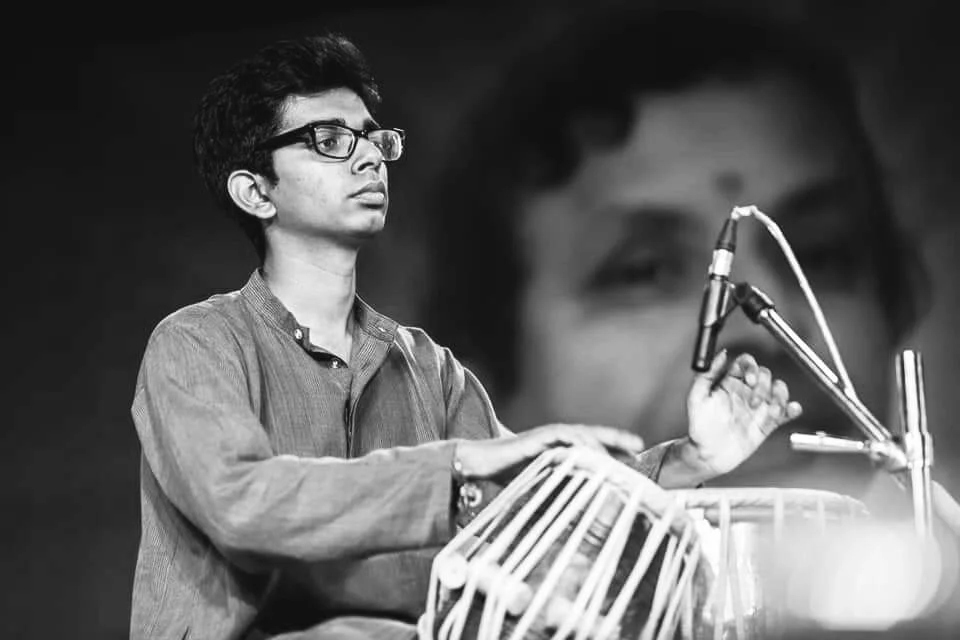INTERVIEW: Sivakumar Balakrishnan
Meet Sivakumar Balakrishnan, a Layanjali tabla player and teacher. Sivakumar was introduced to the percussion instrument which originated from India when he was 4 and has been guided and taught by his Guru and mentors. He’s collaborated with WAAPA, is part of the Praashekh Quartet and teaches tabla at Saraswati Mahavidhyalaya. Sivakumar talks to Yoshika about finding inner peace from playing the tabla, what it represents to him and Australia and why it’s so important to share culture and music.
In your own words, who are you and what do you do?
I would think of myself as an Art lover and a student of music. Since the age of 4, I have been playing the tabla and that for me is my passion and language. This keeps me motivated for performing and teaching regularly
What do you love about playing the tabla and teaching the tabla?
For me the Tabla is an instrument that has so much to offer musically. This tradition has been there for centuries and even now it is evolving. I think just the sound of the Tabla - the combination of the treble and bass drum, and the various rhythmic patterns played on it was enough to capture my attention and dedicate my life to it.
In terms of teaching, I find it important that I share whatever little knowledge I have with those who come looking for it. When a student plays the instrument with enjoyment and dedication, that brings great joy to me.
You have the title of Layanjali – could you explain what that means?
This term is given to the graduates of the our Arts school, Saraswati Mahavidhyala. When tabla students completes required learning which makes them knowledgeable musicians, they present their debut concert on stage showcasing all they have learnt over the years. Upon completing it, students gets this title which indicates that they have sufficient knowledge of this art form. I completed my debut concert in 2015 in Perth.
You’ve had really great mentors and a Guru to guide and teach you. What was your relationship with your Guru like? Is it similar to a teacher, student relationship? How have they helped you grow as a person and as a musician?
Most of my learning was done in Singapore from my Guru , Nawaz Mirajkar. With Indian art, there is a wide variety of knowledge just waiting to be learnt and a student needs to be eager and receptive to pick up as much as he can. A Guru is someone who shows you the way and tries to create the perfect disciple. So much so, the student would not only become a good musician but a great human being as well. We treat the Guru with respect, devotion , sincerity and humility. All these qualities are equally important for a student to excel. Over time I started to realise that the discipline which goes into learning a instrument can be applied to how we grow as people. Essentially whatever I am today or will become can be credited to my Guru.
You mentioned that you wanted to share your culture and music to a wider audience, why is this important to you?
My understanding of who I want to become revolves around the idea of sharing. What I feel when I play, whether the excitement, the intensity or even the calmness should be carried to the audience. Essentially, the music I make defines who I am. I believe as a musician I have a responsibility of emoting ideas and feelings to the listeners. At the end of the day I want to share the feeling I get with everyone. That is my goal. Many people still have not heard a tabla being played live in its authentic form. So I would love to share my little knowledge with as many people as possible to provide them with a different understanding of music.
What do you want to achieve by playing the tabla and teaching people how to play it?
I think more than just performing, on a personal level I am beginning to discover that this instrument is not just there to entertain me and audiences. It can be used as a medium to achieve a sense of calmness within. Inner peace if you'd call it. The more practice you do , the deeper you go and I want to know what's waiting right at the end. Perhaps I might find out or maybe I won't, but I won't stop trying.
I feel that I must impart everything I know to the next generations so that this music lives on. And this will happen due to so many wonderful artists teaching their art around the world. Even if I can create one student who can play better than me, I will be thrilled and satisfied.
What does the tabla represent to you? What does it represent in Australia?
Well this instrument represents my culture and identity. I've learnt so much about India just by learning Tabla and still learning till this day. Australia is a multicultural country and I hope that through this art I can create more awareness to this ancient tradition of India but also create a new multicultural sense of music in Australia.
Sivakumar currently teaches tabla classes at Saraswati Mahavidhyalaya, keep up-to-date with his performances and projects via his Facebook.
INTERVIEW BY: YOSHIKA KON


